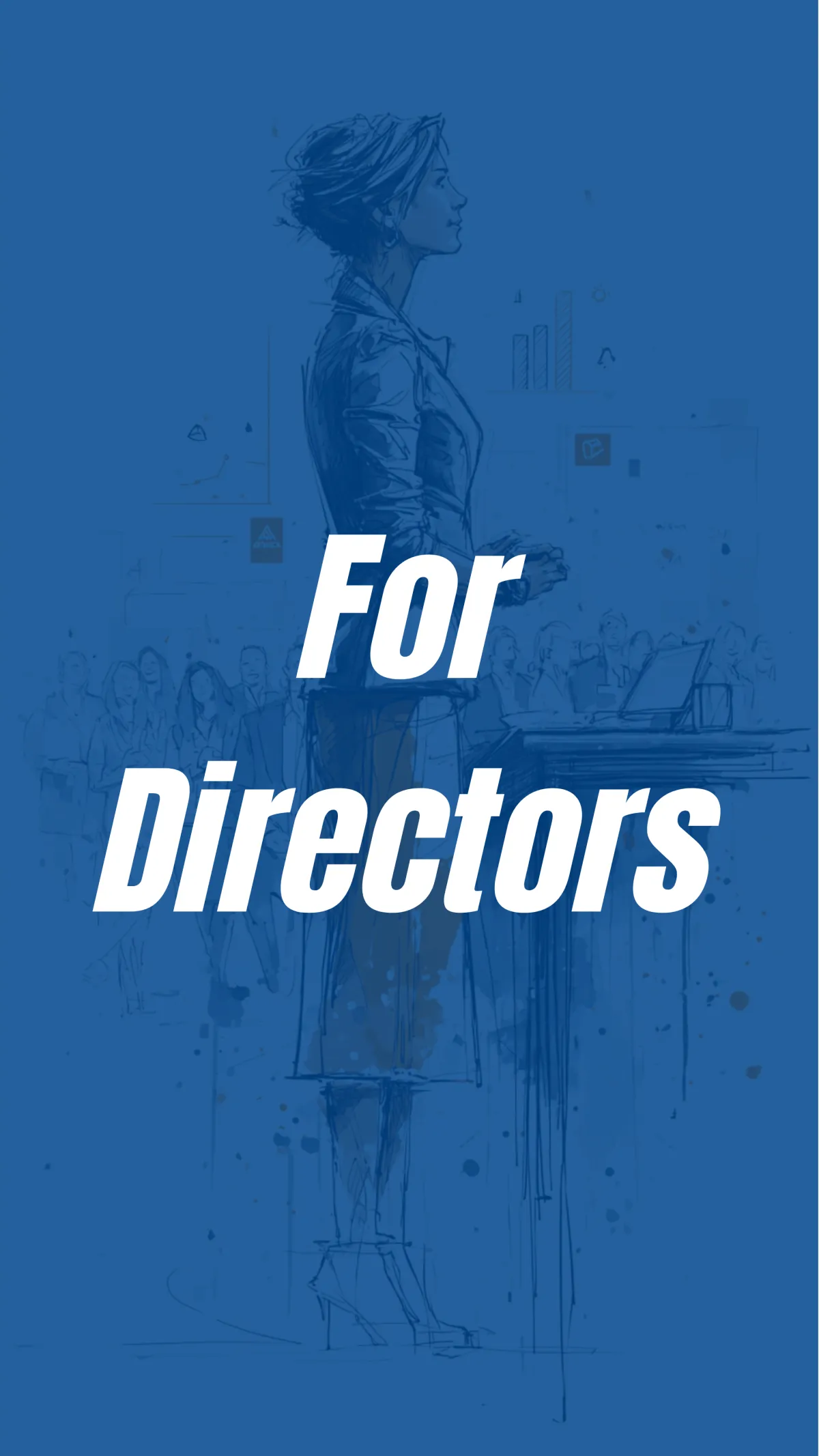
How Do Successful Agents Ensure Business Continuity?
It feels like walking a tightrope, doesn't it? One minute you're closing deals and riding high, the next a market shift or personal emergency threatens to pull the rug out from under you. You've probably wondered, how do successful agents ensure business continuity? It's a question that keeps many of us up at night because stability in this industry can feel like a myth.
But the truth is, top agents aren't just lucky; they are prepared. They have built their business on a foundation that can withstand a storm. If you're tired of the feast-or-famine cycle, you have come to the right place because understanding this question is the first step toward building a business that lasts.
Unlock your potential with AI-powered solutions tailored to your real estate needs. Save time, grow faster, and work smarter. Schedule your discovery session now atlesix.agency/discovery.
Why Business Continuity is a Game-Changer

How do successful agents ensure business continuity? Let's get one thing straight: a business continuity plan isn't just a corporate buzzword for big brokerages. For a solo agent or small team, business continuity plans are your lifeline. It's the difference between pausing your business during a crisis and shutting it down completely, which prevents long-term business disruption.
Continuity planning prepares you for all kinds of unexpected events. An unprepared agent gets sick for two weeks, and their lead pipeline dries up. A natural disaster could make your office inaccessible, or a market correction could make your primary lead source vanish overnight, which are just a few potential risks.
A prepared agent, however, has a solid business continuity strategy that keeps critical business functions working even when they can't. They have multiple streams of business, so a slowdown in one area doesn't sink the ship. This approach builds true organizational resilience and is fundamental to being a smart business owner.
Build a Fortress with Systems and Processes
The most successful real estate agents are not superhuman. They have simply removed themselves as the bottleneck in their own business. They do this by creating powerful systems and documenting their processes so anyone, including new team members, can step in and help.
Your CRM Is More Than a Digital Rolodex
Are you using your Customer Relationship Management (CRM) software to its full potential? For many agents, it's just a place to store phone numbers. A well-used CRM is the command center of a resilient business and a key part of your management plan.
It tracks every conversation, sets reminders for follow-ups, and can even automate email campaigns. This system is vital for protecting sensitive client information and managing your critical data in one secure location. If you need someone to cover for you, they can log in and instantly see a client's entire history, maintaining your standard of service delivery.
Standard Operating Procedures (SOPs): Your Business Playbook
SOPs sound formal, but they are just simple checklists for repetitive tasks. They are your step-by-step guides for everything you do, making your workflow predictable and consistent for every client. Developing these processes is a sign of a high maturity model in your business operations.
You can create SOPs for:
New client onboarding and initial communication methods.
Listing marketing launch sequence.
Contract-to-close checklist for buyers.
Social media post scheduling and engagement.
Regular data backup procedures for all critical data.
Client gift and follow-up schedules.
With clear SOPs, a virtual assistant or a colleague can manage critical operations without asking you a hundred questions. This documentation is what allows you to finally take a real vacation. This planning helps you run an effective business even when you are not physically present.
How Do Successful Agents Ensure Business Continuity? They Diversify.
You wouldn't put your life savings into a single stock, would you? Of course not. So why would you bet your entire real estate career on a single source for leads? Diversification is at the very core of all effective business continuity strategies.
Don't Rely on a Single Lead Source
Many agents get comfortable with one lead generation method that works. Maybe it's online ads or open houses. But what happens when ad costs skyrocket or the market shifts away from open house traffic? A proper risk assessment of your lead generation activities is crucial.
The smartest agents build a balanced portfolio of lead sources, which is a key continuity strategy. This way, if one channel in your client supply chain slows down, the others pick up the slack. You need a healthy mix to stay afloat no matter what the market does.
A mix of high-effort and low-effort activities is best. This balance keeps you from burning out while also making sure leads are always coming in. Such continuity strategies protect your income from market volatility.
Cultivating Your Sphere of Influence (SOI)
Your SOI is your most recession-proof asset. These are the people who already know, like, and trust you. This lead source isn't dependent on market conditions; it's dependent on your relationships.
Nurturing your SOI doesn't have to be complicated. Simple acts like regular phone calls, personal notes, or hosting an annual client appreciation party go a long way. This consistent effort builds a loyal base that sends you business for years, forming a strong pillar in your recovery plan if other lead sources fail.
Developing a Crisis Management Plan
Having systems and diverse lead sources is great, but a formal crisis management plan prepares you for specific threats. This is not about negativity; it's about control. A plan gives you a clear path forward during chaotic times.
The first step in business continuity planning is to conduct a business impact analysis. This analysis helps you identify your most critical business functions and the potential impact a disruption would have on them. You can ask simple questions: What tasks must be done daily to keep the business alive? What would be the financial and reputational damage if I couldn't perform these tasks for a week?
Once you understand your vulnerabilities, you can develop specific recovery strategies. For instance, if your primary communication method is your cell phone, what is your alternative communication plan if you lose it? Setting up a cloud-based phone service is a simple recovery strategy. These plans don't need to be complex; many organizations offer free resources and plan templates to get you started.
You should also run through potential scenarios with periodic crisis exercises. What is your incident response if a closing is delayed due to a banking failure? What if your area faces a natural disaster that cuts off power for days? Thinking through these events ahead of time makes your response calm and professional instead of panicked.
Technology and Security Operations
In today's digital world, a major threat to business continuity is a cyber incident. Protecting your digital assets is just as important as protecting your physical office. A breach of client data can be devastating to your reputation and finances.
A cornerstone of digital security is a robust data backup strategy. Are you backing up your client files, contracts, and CRM data regularly? You should have both a local backup and a cloud-based backup to guard against everything from hardware failure to a fire.
Strong security operations also involve protecting sensitive information from hackers. This means using strong, different passwords for every account, enabling two-factor authentication, and being wary of phishing emails. While you may not have a global security operations center like a large corporation, you can adopt the same principles of vigilance and proactive defense. The goal is to make your business a difficult target for cybercriminals.
The Power of People: Building Your Support Network
You can't build a truly resilient business all by yourself. Top agents understand the value of leverage. They build a support network that allows them to focus on what they do best: serving clients and closing deals.
The Role of a Virtual Assistant (VA)
A virtual assistant might be the best investment you ever make in your business. They can take over the time-consuming administrative tasks that bog you down. This includes everything from managing your calendar and inbox to updating your CRM.
A VA provides immediate backup. If you get sick or have a family emergency, they can keep the administrative side of your business running and assist in recovery efforts. They can post to social media, handle crisis communications with new leads, and make sure nothing falls through the cracks.
Partnering with Other Agents and a Reliable Broker
The real estate industry can feel competitive, but your colleagues can also be your greatest allies. Build genuine relationships with a few other agents you trust. You can create a reciprocal agreement to cover for each other's clients and professional appearances during emergencies or vacations.
Your choice of a brokerage also plays a huge part in your stability. A supportive broker provides essential resources, like training, technology, and mentorship, and is critical to maintaining service. During uncertain times, having that institutional support can be a major advantage, as many have robust continuity plans you can leverage.
Financial Planning for the Inevitable Slowdown
The inconsistent income is one of the toughest parts of a real estate career. One great month can be followed by two slow ones. Without proper financial planning, this rollercoaster can be incredibly stressful and pose a risk to your business.
The 'Profit First' Mentality
Too many agents treat their business account like a personal piggy bank. A better approach is the 'Profit First' method, made famous by author Mike Michalowicz. The idea is simple but powerful.
With every commission check, you immediately allocate money into separate accounts: one for profit, one for owner's pay, one for taxes, and one for operating expenses. By paying your profit account first, you force yourself to run your business on what's left. This builds a healthy cash reserve that acts as a buffer during slow periods, forming a financial disaster recovery fund.
Having Separate Business and Personal Accounts
This sounds basic, but you'd be surprised how many agents mix their finances. Having a separate business checking account and credit card is the first step toward financial clarity and ensuring compliance with regulatory requirements. It makes bookkeeping easier and gives you a true picture of your business's health.
When you can clearly see your business income and expenses, you can make smarter decisions. You'll know exactly how much you need to set aside for taxes and when you can afford to invest in a new tool or hire help. This control over your finances reduces anxiety and prepares you for anything.
Conclusion
Building a business that can stand the test of time isn't about some hidden secret. It is about a commitment to being a professional, not just a salesperson. It means putting in the work upfront to create systems, develop continuity plans, diversify your efforts, lean on others, and manage your money wisely.
So, how do successful agents ensure business continuity? They anticipate challenges through risk assessments and prepare for them with a detailed crisis management plan. They leverage technology and people to create a resilient operation that continues to provide excellent service delivery, no matter the circumstances.
By focusing on these pillars of preparation, you will have a clear answer to that critical question. You will stop leaving your success to chance and start building it on purpose, brick by brick. An effective business is a prepared business.
Ready to take your real estate success to the next level? Schedule your discovery session today at lesix.agency/discovery. Stay ahead with tips and insights—subscribe to our newsletter at lesix.agency/newsletter.










